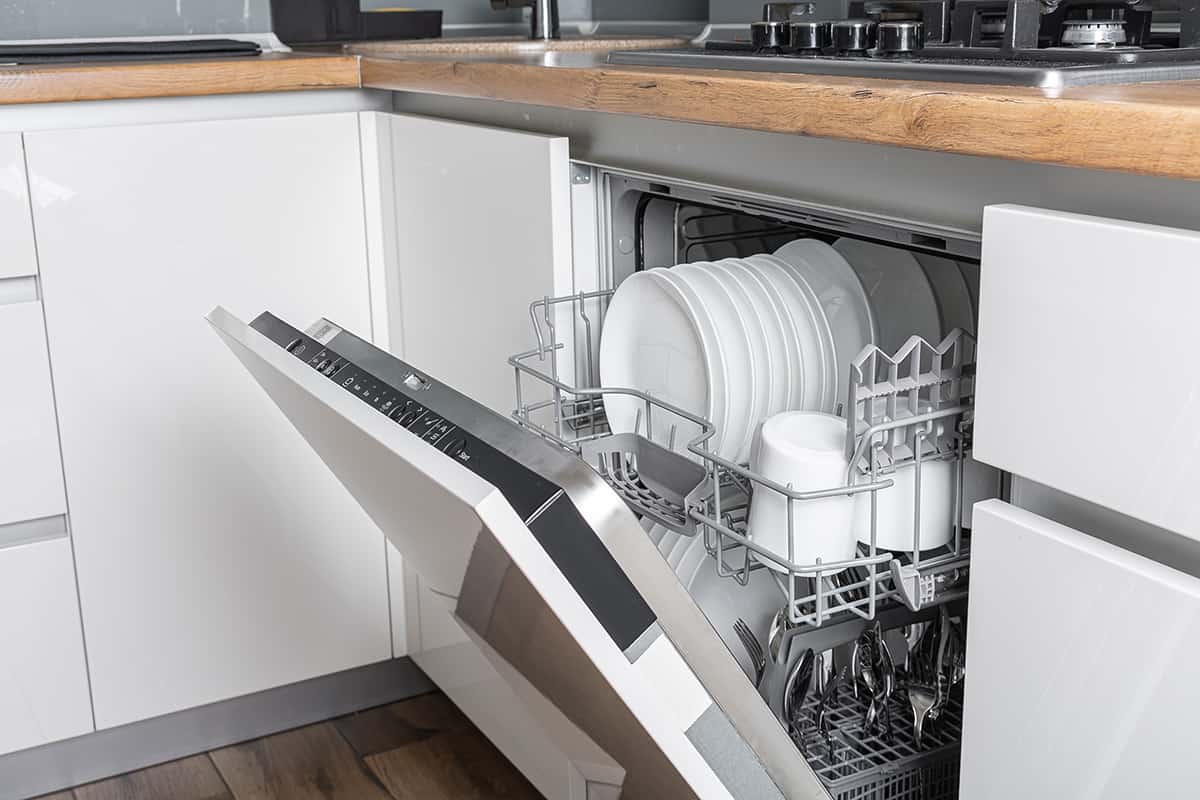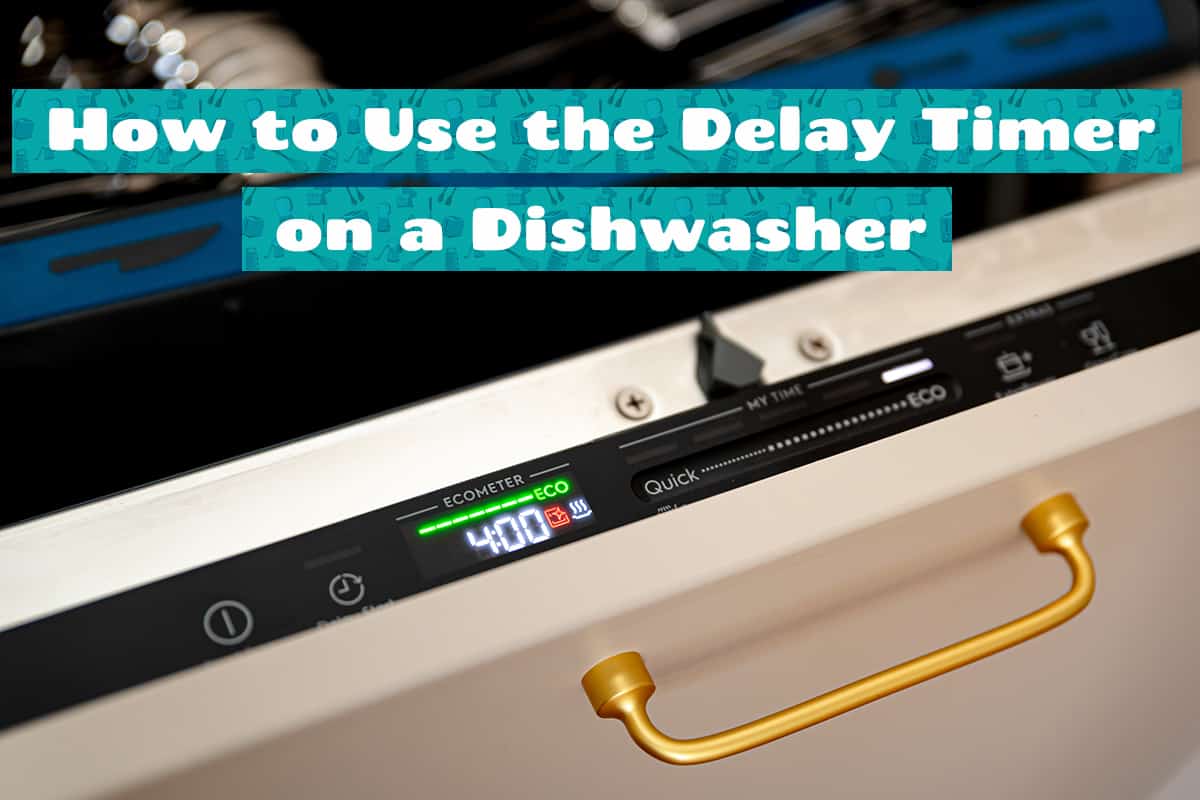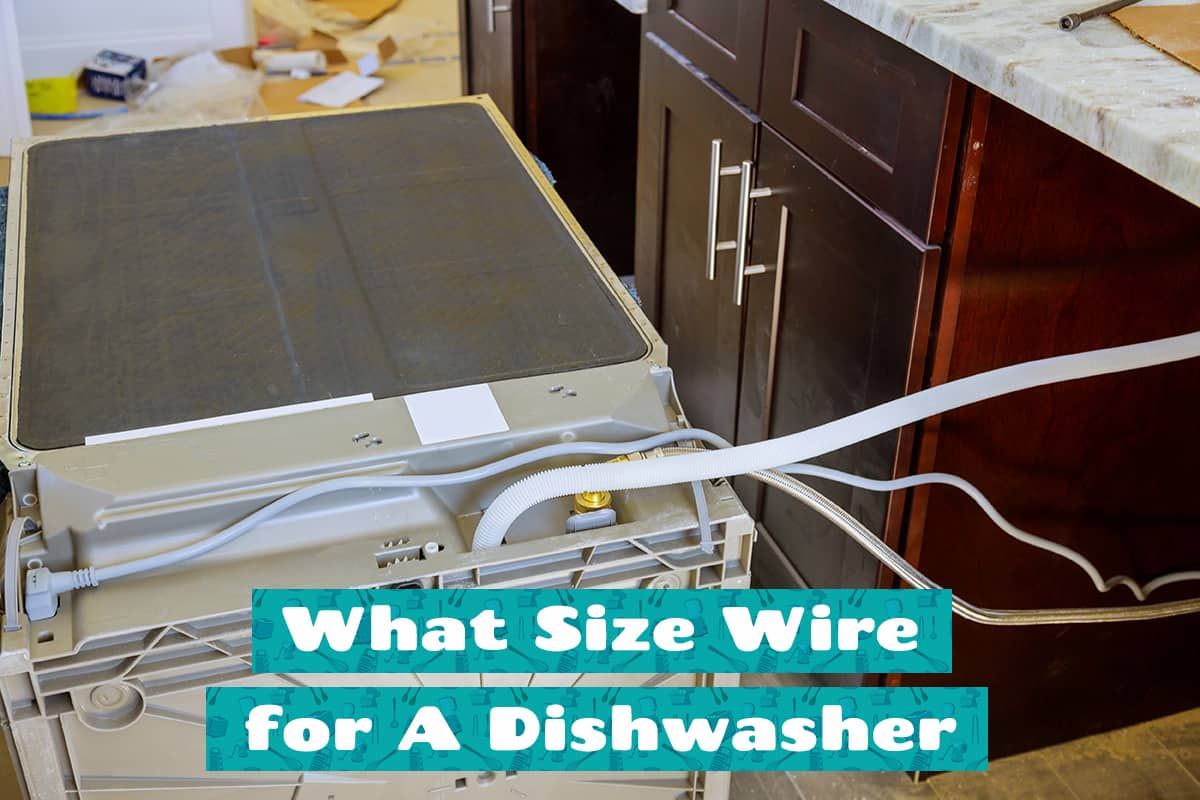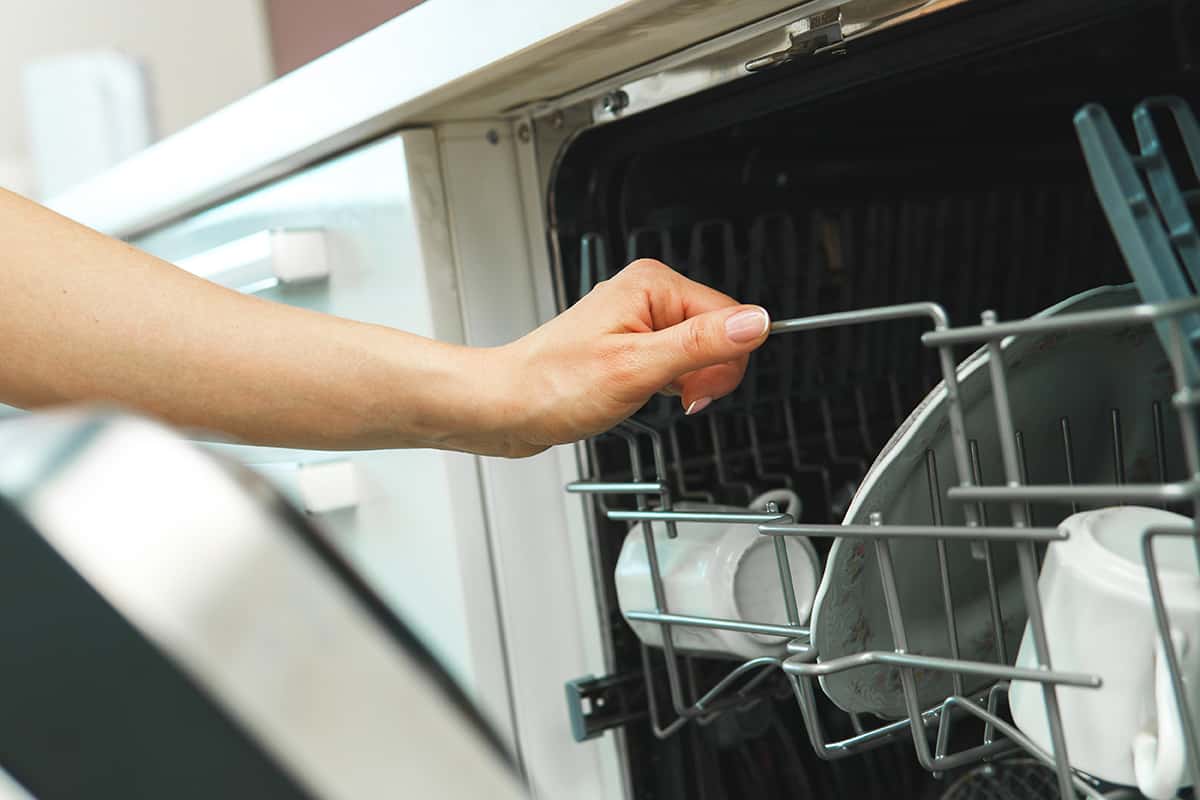Water quality plays a vital role in the performance and longevity of home appliances. The hardness of water, though often overlooked, can significantly affect your dishwasher, one of the most frequently used appliances in your kitchen. This guide will enlighten you on the hard water-dishwasher dynamic and its real-world implications.
Hard water is water high in minerals like calcium and magnesium. It can lead to mineral buildup in your dishwasher, possibly compromising the efficiency of the appliance and resulting in less clean dishes.
Through this article, you will gain a deeper understanding of what hard water is, its effects on your dishwasher, and practical ways to mitigate these challenges.
Introduction to Hard Water
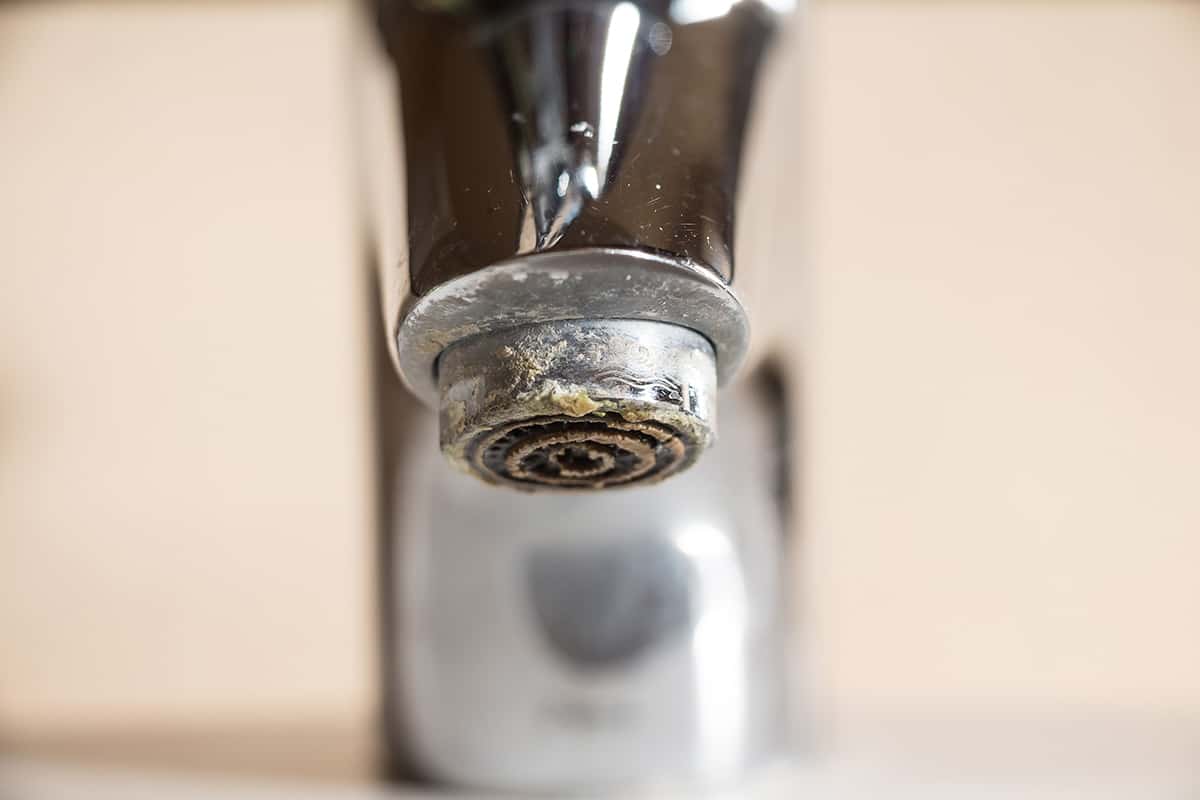
Water is a vital component of our lives and homes. Yet, many homeowners overlook the water quality, specifically the hardness of water, and its impact on their appliances.
What Is Hard Water?
Hard water refers to water that contains a high concentration of dissolved minerals, particularly calcium and magnesium. This hardness arises naturally as water filters through deposits of limestone and chalk, rich in these minerals. Though not generally harmful to consume, hard water can affect your home and appliances in several ways.
How to Identify Hard Water at Home
Recognizing the presence of hard water at home can be quite straightforward. Here are a few signs you should look out for:
- Spots and Residue: If your dishes, glasses, or silverware frequently have spots or white residue after washing, this could be a sign of hard water. The minerals in hard water can leave deposits on your dishes, causing these spots.
- Soap Scum: Hard water reduces soap’s ability to lather, and it can leave a soap scum residue in sinks, bathtubs, and appliances.
- Skin and Hair: After washing with hard water, your skin might feel dry and your hair dull or heavy. The minerals can strip natural oils, causing these effects.
- Appliance Lifespan: If your appliances, such as water heaters, washing machines, or dishwashers, are failing before their expected lifespan, hard water could be a contributing factor.
Hard Water and Dishwasher Performance
When it comes to the longevity and efficacy of your dishwasher, the quality of the water running through it plays an essential role. Specifically, hard water can have notable implications on your dishwasher’s performance.
The Direct Connection Between Hard Water and Dishwasher Performance
Hard water can drastically affect how well your dishwasher works. The minerals in hard water tend to stick to surfaces they come into contact with, leading to buildup. This buildup, often called limescale or mineral scale, can accumulate in the dishwasher’s interior components, including the spray arms, the heating element, and the pipes.
This accumulation can clog and corrode the dishwasher’s internal parts, affecting the water flow and the overall performance of the appliance. Reduced water flow means less effective rinsing, and dishes might come out not thoroughly cleaned. Limescale on the heating element can also make it less efficient, leading to longer wash cycles and increased energy consumption.
Additionally, hard water can affect the effectiveness of dishwasher detergents. The minerals interact with the detergent, reducing its cleaning power. This could leave dishes looking spotty or filmy, despite going through a wash cycle.
Visual Indicators of Hard Water Effects on Your Dishwasher
Recognizing the impact of hard water on your dishwasher isn’t always immediately evident. However, there are a few visible signs you can watch for:
- Buildup in the Dishwasher: Limescale can accumulate on visible parts of the dishwasher, such as the interior surface, the door, and the utensil holder.
- Decreased Efficiency: If your dishwasher seems to be working harder or taking longer to clean dishes, hard water could be the culprit.
- Detergent Performance: If your detergent isn’t dissolving correctly or you’re finding that you need to use more detergent to get your dishes clean, hard water might be the cause.
Long-term Effects of Hard Water on Dishwasher Lifespan
The continued operation of a dishwasher with hard water can shorten its lifespan. Limescale buildup can lead to corrosion and damage to the internal components. Frequent blockages might necessitate repairs more often than normal, contributing to wear and tear.
Moreover, hard water can stress the heating element, forcing the dishwasher to consume more energy and work harder to achieve the required temperature. This increased strain can accelerate the deterioration of the dishwasher, leading to potential breakdowns and the need for early replacement.
Consequences of Hard Water for Your Dishes and Utensils
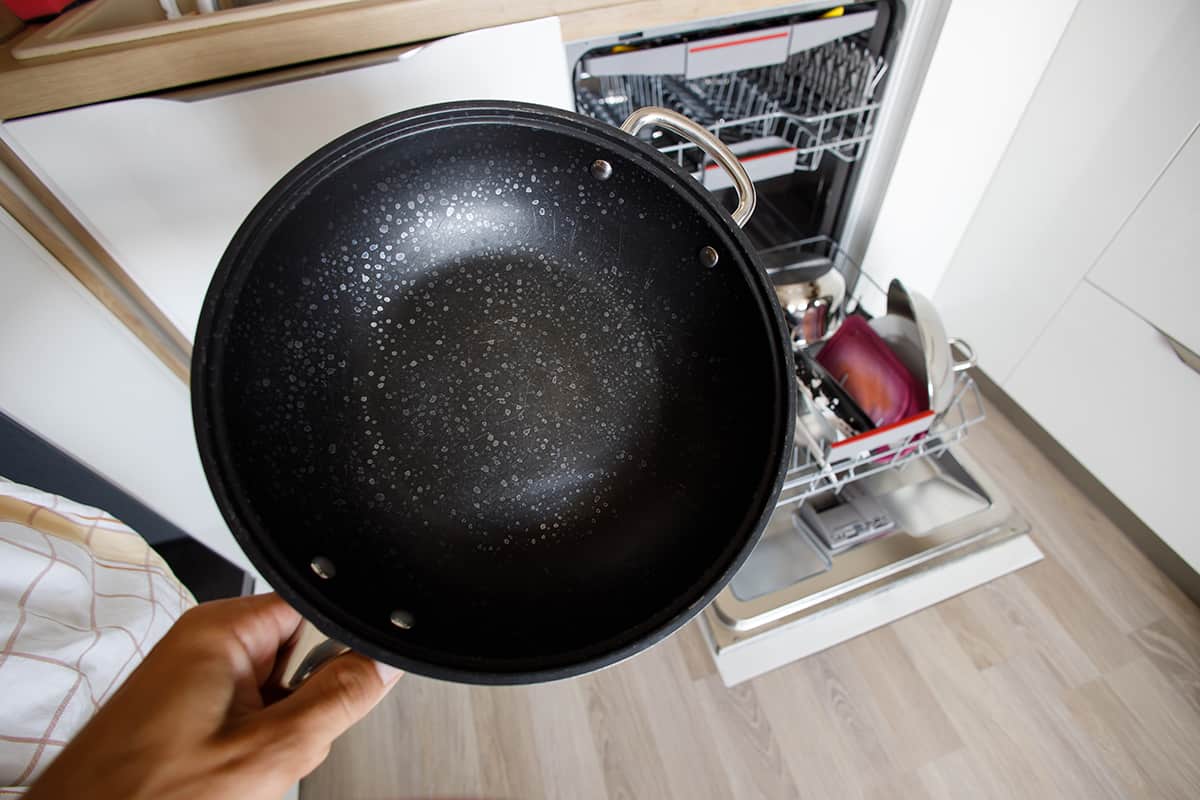
One of the most immediate and visible effects of hard water can be seen on the dishes and utensils cleaned in your dishwasher. While these effects may seem minor at first, they can lead to significant frustrations and potentially even damage your dishware.
The Problem of Spots, Streaks, and Film
Hard water can leave spots, streaks, or a filmy residue on your dishes and utensils after they have been through a wash cycle. These deposits are often calcium or magnesium salts that remain after the water evaporates. These can be especially noticeable on dark-colored plates and utensils.
This filmy residue can also be a result of the hard water reacting with your dishwasher detergent. The calcium and magnesium in hard water can react with the chemicals in the detergent to form insoluble salts, which can leave a film on your dishes.
While these spots, streaks, and film may not necessarily damage your dishes, they can make them look dirty or unclean, even after washing. They can also be difficult to remove, requiring extra hand washing or soaking, which can be time-consuming and frustrating.
The Implication for Glassware and Silverware
Glassware and silverware can be particularly susceptible to the effects of hard water. For glassware, the most common issue is the formation of a white, cloudy film. This film is usually mineral deposits from the hard water, and it can be particularly noticeable on clear glass.
For silverware, hard water can cause tarnishing or dulling. The minerals in hard water can react with the silver, causing it to lose its shine. In severe cases, hard water can even cause pitting on the surface of the silverware.
Regular cleaning and polishing can help maintain the appearance of your glassware and silverware. However, continuous exposure to hard water can lead to permanent damage. For instance, the cloudy appearance on glassware, often referred to as “etching”, can become permanent over time if the glassware is consistently washed in hard water.
The consequences of hard water on your dishes and utensils go beyond aesthetics. It can lead to increased time and effort spent on dish cleaning and potential damage to your dishware. Therefore, understanding and managing the impact of hard water is crucial for maintaining your dishes’ appearance and longevity.
The Hidden Costs
The effects of hard water can also impact the cost of running your dishwasher. Due to the reduced effectiveness of detergents in hard water, you may find yourself using more detergent to get your dishes clean. This not only increases the cost of dishwasher detergent but may also have environmental implications due to increased chemical usage.
In addition, as mentioned earlier, limescale buildup on the heating element can reduce its efficiency. This means your dishwasher may need to consume more energy to reach the required temperature, leading to higher energy bills.
Solutions for Hard Water on Dishwashers
Hard water may be a prevalent issue, but it is not one without solutions. From using specialized cleaning agents to investing in water-softening systems, there are various ways to tackle the problem of hard water on your dishwasher.
1. Choosing the Right Dishwasher Detergent
Not all dishwasher detergents are created equal, especially when it comes to dealing with hard water. When selecting a detergent, it’s beneficial to choose detergents specifically designed to handle hard water. These detergents contain water-softening agents that neutralize the minerals present in hard water, enhancing their cleaning effectiveness.
Using a rinse aid can be helpful. Rinse aids work by reducing the surface tension of water, encouraging it to run off the dishes more easily. This helps prevent the water from drying in droplets and leaving spots.
2. Regular Maintenance and Cleaning of Your Dishwasher
Regular cleaning can help prevent the build-up of limescale and mineral deposits in your dishwasher. Many manufacturers recommend monthly cleaning, but the frequency may vary depending on your water’s hardness and your dishwasher usage.
You can use a commercial dishwasher cleaner or a home solution such as white vinegar. If you’re using vinegar, place a cup of white vinegar in the top rack of the dishwasher and run a hot-water cycle. This can help dissolve the mineral build-up and deodorize the dishwasher.
Inspecting and cleaning the dishwasher’s parts, such as the spray arms and filters, can also be beneficial. Check your dishwasher’s user manual for instructions on how to do this.
3. Investing in a Water Softening System
For a more long-term solution, you may consider investing in a water-softening system. Water softeners work by removing the calcium and magnesium ions in hard water and replacing them with sodium ions. This process effectively ‘softens’ the water, mitigating the issues associated with hard water.
There are several types of water softeners available, including salt-based ion exchange softeners, salt-free water softeners, and reverse osmosis systems. The choice of system depends on your specific needs, the hardness of your water, and your budget.
